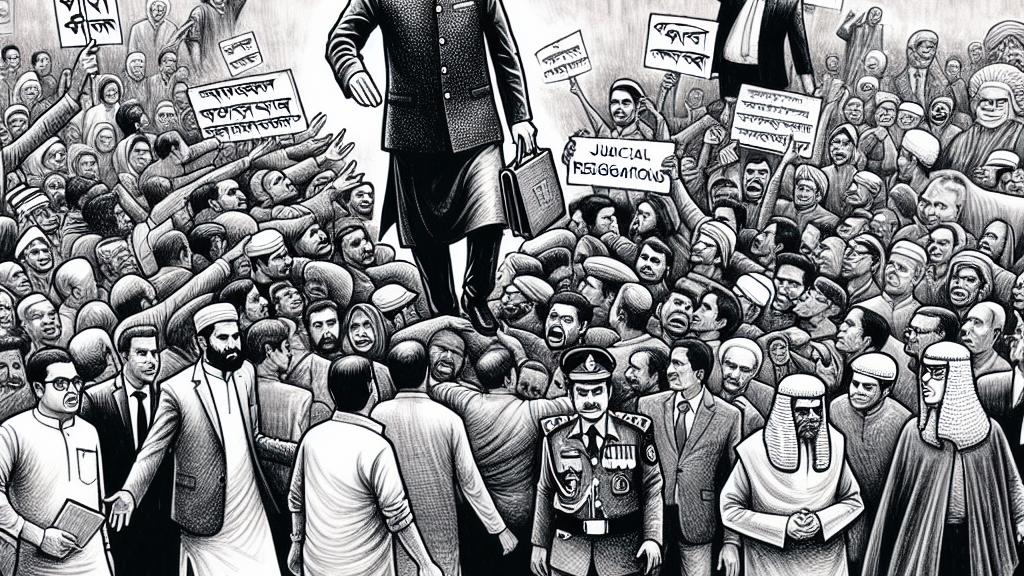Bangladesh in Turmoil: Refaat Ahmed Takes the Helm Amidst Judicial Resignations!
Overview
- Refaat Ahmed sworn in as new Chief Justice amid ongoing political crisis.
- Mass resignations from the judiciary follow Sheikh Hasina's regime fall.
- Student activism plays a crucial role in shaping political reform.

A Historic Shift in Bangladeshi Politics
Bangladesh is currently navigating a tumultuous political landscape marked by the resignation of long-serving Prime Minister Sheikh Hasina. Her departure, resulting from mounting protests against her government's policies, signifies a pivotal moment in a country where political tensions have been escalating. Protesters, frustrated with years of perceived autocratic rule and human rights abuses, took to the streets in unprecedented numbers, demanding accountability. The social unrest manifested not only in Hasina's resignation but also forced the resignation of Chief Justice Obaidul Hassan and several other judges, emphasizing the public's desire for significant reform in both government and judiciary.
Judicial Appointment and Challenges Ahead
In the wake of these political changes, Refaat Ahmed has been appointed as the new Chief Justice of Bangladesh. His swearing-in is both crucial and contentious, as the judiciary grapples with deep-rooted issues of corruption and political influence. His predecessor, Surendra Kumar Sinha, left a controversial legacy after being sentenced in absentia for corruption, showcasing the judiciary's precarious position within a highly politicized environment. Ahmed's tenure presents him with the formidable task of restoring integrity to a system marred by mistrust, as he must navigate the tensions between government authority and judicial independence to reinstate the faith of the Bangladeshi people in their justice system.
The Role of Student Activism in Political Dynamics
The climate of unrest has seen a surge in student activism, which has become a formidable force for change in Bangladesh. The Anti-Discrimination Student Movement has been at the forefront, leading protests that have effectively pressured the government and judiciary to heed their demands for reform. These young activists are not only influencers of public opinion but also vital participants in shaping the future of Bangladesh's democracy. Their activism reflects broader societal grievances, including inequitable job quotas and human rights abuses, and without addressing these issues, the new interim government, alongside the judiciary under Ahmed, risks further escalating tensions in the country. As they push for sustainable reforms, the government must engage with these movements seriously to ensure a stable and just political environment.

Loading...